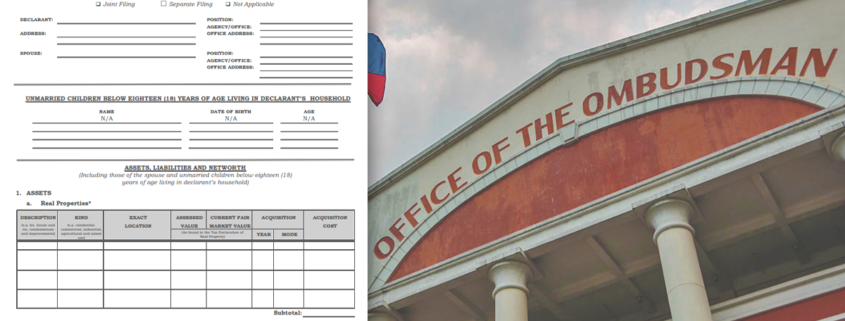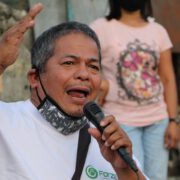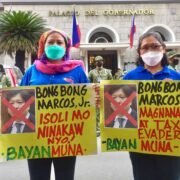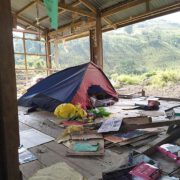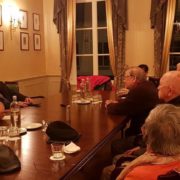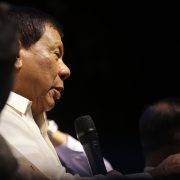Ombudsman’s efforts hide admin corruption
by Sonny Africa
n 2016, Pres. Rodrigo Duterte famously warned government officials against corruption: “Not even a whiff or whisper – I will fire you.”
The Ombudsman restricting access to the statement of assets, liabilities and net worth (SALN) of public officials and proposing to do away with lifestyle checks is only this administration’s latest effort to hide the growing stench of corruption. Yet with the government’s infrastructure budget bloating and the pork-filled 2021 budget being railroaded through Congress, every check on corrupt government officials is more urgent than ever.
Developments with the proposed pre-election 2021 budget make vigilance especially critical. The unprecedented Php1.1 trillion in infrastructure funds takes up almost one-fourth (24%) of the Php4.5 trillion national government budget. Infrastructure projects are notorious sources of corruption with so-called SOP (‘standard operating procedure’) of 10-40% on projects still acknowledged as pervasive. Presumbably most under scrutiny are the administration’s flagship infrastructure projects but these only account for Php158.2 billion or 14% of total infrastructure projects, implying Php941.8 billion worth of projects prone to ‘SOP’ across the country.
The Office of the President (OP) also has an equally unprecedented Php27.3 billion in potential pork barrel funds consisting of the OP’s Php8.2 billion budget and the Php19.1 billion National Task Force to end Local Communist Armed Conflict (NTF-ELCAC) recently created under it. The Commission on Audit (COA) has already lamented being unable to audit the president’s intelligence and NTF-ELCAC funds. The presidential declaration of a state of calamity until September 2021 also threatens to give legal license for public funds to be misused.
SALNs are vital tools for the public to keep watch of government officials. It is common knowledge that SALNs are routinely understated but there is just so much lying that can be done under oath so even inaccurate SALNs can be indicative. Combined with lifestyle checks on spending habits, the public can start to get an idea if public officials’ lifestyles are commensurate to their lawful income.
SALNs are weaponized because this is exactly what they are – weapons against corrupt public officials. Unlike private citizens, public officials have powers that can be abused for self-serving gain through bribes, kickbacks and malversation. Any flaws in how they are used should just be corrected because discontinuing them will favor corrupt public officials more than benefit honest ones.
None of which is to say that SALNs and lifestyle checks are currently effective in curbing corruption. The Ombudsman and Presidential Anti-Corruption Commission (PACC) are understaffed and grossly lack the resources to properly check on over 1.7 million government officials and employees. The Ombudsman and PACC are also helmed by San Beda schoolmates of Pres. Duterte – Samuel Martires and Danilo Yang, respectively – which cannot add confidence about how the office will be used especially against those close to the president.
In this context, media and the public are vital force multipliers to combat systemic and entrenched corruption in government and should be empowered. However, the Ombudsman’s retrogressive efforts significantly cripple media and the public from their vital watchdog role. The Ombudsman is also rolling back gains from the Ill-Gotten Wealth Law (RA 1379) which boldly, even on paper, put the burden of proof on government officials to show that wealth and assets not commensurate to visible sources of income were lawful.
The majority of public officials and employees are honest and do not fear SALNs. Indeed, holding public office also only becomes more honorable if public servants allow themselves to be held to a higher standard. Conversely, hiding corruption and hindering the vigilance of citizens only diminishes public office and officials. #

